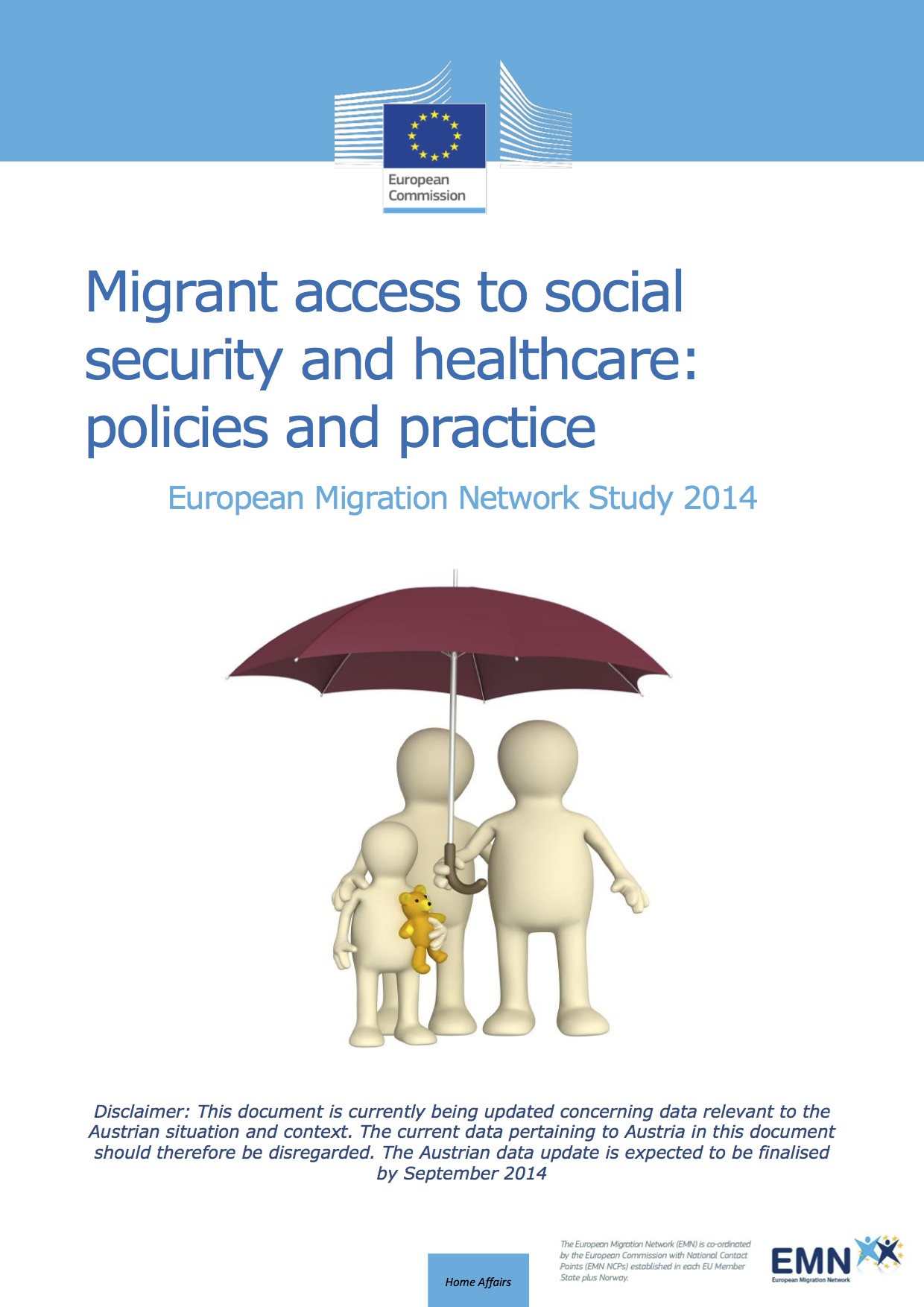The equal treatment provisions contained in the EU’s Migration Directives have influenced national legislation and practice, in particular as regards the social security rights of third-country nationals holding long-term residence permit and EU Blue Card holders. (The timing of the research conducted for this study did not permit analysis of the impact of the Directives in most Member States on other groups of third-country nationals, including Single Permit holders). However, in the absence of Union-level harmonisation of social security policies, significant variations exist in relation to the range of benefits available in Member States, the way these benefits are financed (insurance contributions, general taxation or both) and the conditions under which the benefits are granted.
There appears to be a connection between the systems used to finance social security benefits and their accessibility by third-country nationals. Third-country nationals that are holders of long-term residence permits generally have access to all of the benefits reviewed in this study. However, equal treatment for third-country nationals that are holders of fixed-term residence permits tends to be granted more readily in relation to benefits that are financed through contributions by employers and employees (e.g. sickness cash benefits, invalidity benefits, old-age pensions, survivors’ benefits, and benefits in respect of accidents at work and occupational diseases) than in relation to benefits that are financed through general taxation (e.g. family benefits, long-term care benefits and guaranteed minimum resources i.e. social assistance).
Member States use different mechanisms to regulate access by third-country nationals to social security benefits. These include migrant-specific eligibility rules, where third-country nationals are required to hold a particular residence permit, authorisation of stay or visa; as well as eligibility rules that apply to third-country nationals and Member State nationals alike, such as minimum residence periods; restrictions on exporting certain social security benefits; minimum employment (or contribution) periods; and the use of administrative discretion in order to determine eligibility. The eligibility rules that apply equally to third-country nationals and Member State nationals may represent a greater hurdle for third-country nationals whose presence in the country tends to be more recent and temporary.
In the majority of Member States, claiming social security benefits – in particular social assistance – can have some negative impact on the legal status of third-country nationals in procedures for residence
permit renewal, applications for long-term residence permits, naturalisation and family reunification. This negative impact is foreseen in the Directive on the admission of researchers (2005/71/EC) and the Directive on EU Blue Card holders (2009/50/EC) which require the researchers and EU Blue Card holders to have sufficient resources to meet his/her expenses without having recourse to the Member State’s social assistance system.
Existing bilateral agreements on social security reached by Member States with third-countries extend access by third-country nationals to certain social security benefits, especially benefits that are contributory or partially contributory. However, significant variations in the material scope and geographical coverage of these bilateral agreements mean that many third-country nationals may lose acquired social security rights when they move out of the European Union.
Migrant Access to Social Security and Health Care: Policies and Practices

